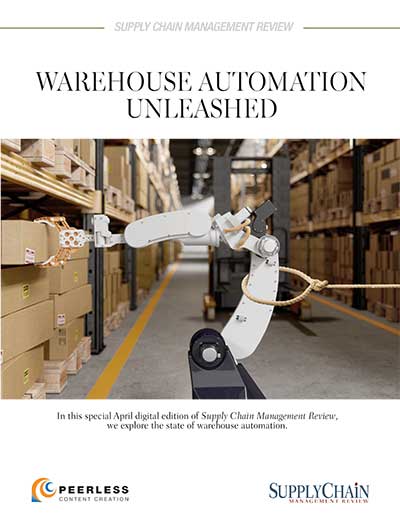Sorry, but your login has failed. Please recheck your login information and resubmit. If your subscription has expired, renew here.
March-April 2019
A few days ago, a colleague sent me “The Death of Supply Chain Management,” an article in the Harvard Business Review. If the title wasn’t enough to grab my attention, the last sentence in the first paragraph had me checking out job openings on LinkedIn: “Within five years to 10 years, the supply chain function may be obsolete, replaced by a smoothly running, selfregulating utility that ….. requires very little human attention.” Read more carefully, what the authors are really arguing is that as NextGen technologies find their place in our organizations, the role of the supply chain manager, including procurement managers, is going to… Browse this issue archive.Need Help? Contact customer service 847-559-7581 More options
“Navigator: Now, next and how for business,” a new survey of more than 8,500 companies in 34 markets from HSBC Navigator, confirms what Global Links readers have suspected all along. The inexorable march toward cleaner supply chains addresses climate change while delivering shareholder value and monetizing new lean disciplines.
According to the survey, almost one third (31%) of companies globally plan to make sustainability-related changes to their supply chains over the next three years. Of those making ethical or environmentally sustainable changes to their supply chains, cost efficiencies (84%) and improved revenues and financial performance (also 84%) are the primary motivations.
This trend comes as companies face increasing pressure from customers to be more sustainable and transparent about their sourcing. With around 80% of a company’s environmental impact found in its supply chain, the “green” credentials of strategic suppliers and partners are critical factors in a firm’s reputation and performance.

This complete article is available to subscribers only.
Log in now for full access or start your PLUS+ subscription for instant access.
SC
MR
Sorry, but your login has failed. Please recheck your login information and resubmit. If your subscription has expired, renew here.
March-April 2019
A few days ago, a colleague sent me “The Death of Supply Chain Management,” an article in the Harvard Business Review. If the title wasn’t enough to grab my attention, the last sentence in the first paragraph… Browse this issue archive. Access your online digital edition. Download a PDF file of the March-April 2019 issue.“Navigator: Now, next and how for business,” a new survey of more than 8,500 companies in 34 markets from HSBC Navigator, confirms what Global Links readers have suspected all along. The inexorable march toward cleaner supply chains addresses climate change while delivering shareholder value and monetizing new lean disciplines.
According to the survey, almost one third (31%) of companies globally plan to make sustainability-related changes to their supply chains over the next three years. Of those making ethical or environmentally sustainable changes to their supply chains, cost efficiencies (84%) and improved revenues and financial performance (also 84%) are the primary motivations.
This trend comes as companies face increasing pressure from customers to be more sustainable and transparent about their sourcing. With around 80% of a company's environmental impact found in its supply chain, the “green” credentials of strategic suppliers and partners are critical factors in a firm's reputation and performance.
SC
MR


Latest Supply Chain News
- Tech investments bring revenue increases, survey finds
- Survey reveals strategies for addressing supply chain, logistics labor shortages
- Israel, Ukraine aid package to increase pressure on aerospace and defense supply chains
- How CPG brands can deliver on supplier diversity promises
- How S&OP provides the answer to in-demand products
- More News
Latest Resources

 Explore
Explore
Procurement & Sourcing News
- Israel, Ukraine aid package to increase pressure on aerospace and defense supply chains
- How CPG brands can deliver on supplier diversity promises
- How S&OP provides the answer to in-demand products
- There is still work to do to achieve supply chain stability
- Blooming success: The vital role of S&OE in nurturing global supply chains
- How one small part held up shipments of thousands of autos
- More Procurement & Sourcing
Latest Procurement & Sourcing Resources

Subscribe

Supply Chain Management Review delivers the best industry content.

Editors’ Picks






